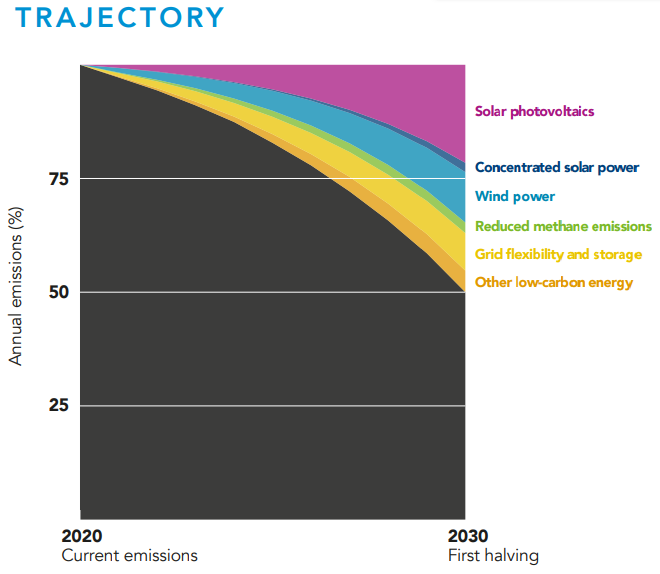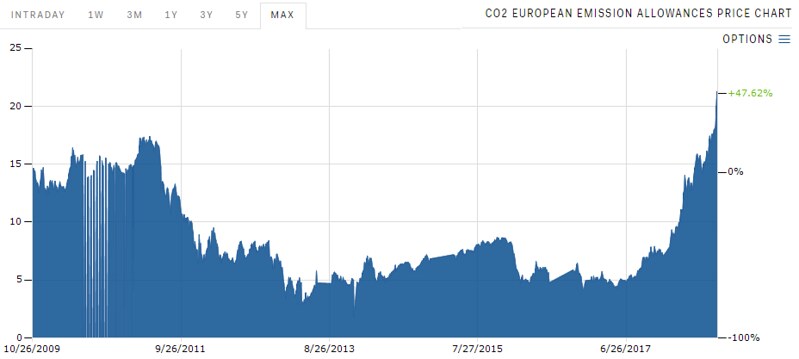
The
Rights of Man, by
Thomas Paine, is dead famous. I've owned it for several decades and it has sat there on my shelf, glowing faintly but uselessly with the light of fame. As my version's intro says, and wiki says, it
defends the French Revolution against Edmund Burke's attack in Reflections on the Revolution in France. You need some dates for context: it was published in 1791-2;
Burke's Reflections in 1790; the
American Revolution finished 1783; the
Storming of the Bastille happened in 1789. The
First Republic was 1792, and so when the book was written things hadn't gone terribly wrong yet. I read it without having read Burke; having just begun on
his text, I feel moderately sure that I'm going to like Burke (
Their passions forge their fetters) more than Paine, but thought it might be instructive to write this down first.
Warning: this review is somewhat rambling and idiosyncratic.
As
English Constitutional Conflicts of the Seventeenth Century will have told you if you didn't know already, the form and source of legitimacy of government was a hot topic. Paine is all in favour of representative democracy
2, and in that he chose the right side of history. Much of the book is complaining at Burke for not being in favour of the French revolution, even though he'd supported the American revolution; and in that Paine - with the benefit of hindsight - was mostly wrong: hopelessly idealistic and over-optimistic.
The book is entitled the Rights of Man. It is not clear if he is in favour of women's rights to vote. He makes no mention of that. Also, whilst he clearly thinks slavery bad, he nowhere in this book condemns his beloved America for permitting slavery. These are odd omissions. The Thomas Paine Society has
a somewhat embarrassed page explaining very delicately that while he cared deeply abut women's rights, he didn't want to do that in public. As
wiki points out, the French revolution he was so keen on didn't give rights to women either. On slavery there seems to be some doubt too. Whilst the constitution society credits him with the strongly anti-slavery
African Slavery In America, wiki is less sure, and
this random blogpost that I found says
Whether he was openly against slavery or not, Thomas Paine did have indicators in his life that leads to the assumption that he might have been a bit of an abolitionist.
What of the book? There's some philosophy in it
1, which was my original interest, but more politics. There's a lot of monarchy-is-terrible, which I'll largely skip over, since it's rather dated. Ditto the history of the revolution, ditto his flings about Burke and his boasts that his books sell better.
Early on, we get
The Parliament or the people of 1688, or of any other period, had no more right to dispose of the people of the present day, or to bind or to control them in any shape whatever, than the parliament or the people of the present day have to dispose of, bind or control those who are to live a hundred or a thousand years hence. Every generation is, and must be, competent to all the purposes which its occasions require. It is the living, and not the dead, that are to be accommodated. This is... not really true. Take, for example, the American Constitution. It binds successive generations. It can be changed, but only with difficulty and only in parts. Contracts remain binding down generations. Within the (modern) UK Paine's words are closer to true, because Parliament is sovereign, but this absolute sovereignty is arguably a bad thing. Certainly, this is the kind of thing that gets him called an Enthusiast by Burke, because taken literally it gives an authority for people to rip everything up and start again (ha ha, you didn't think I wrote
my previous post just randomly, did you?).
I feel I need to demonstrate Paine's over-optimism: perhaps
Notwithstanding Mr. Burke's horrid paintings, when the French Revolution is compared with the Revolutions of other countries, the astonishment will be that it is marked with so few sacrifices or
Whom has the National Assembly brought to the scaffold? None will do it. There are many other examples. He could not see what was coming, and he was not interested in listening to any nay-sayers.
The Rights of Man: what?
I'm glad you asked. Much of the answer looks to be:
The end of all political associations is the preservation of the natural and imprescriptible rights of man; and these rights are liberty, property, security, and resistance of oppression. For those of a leftist persuasion, notice that property is up there are #2, only just behind liberty.
The Rights of Man: where from?
Naturally, at some point Paine asks:
What are those rights, and how man came by them originally? He answers:
we shall come to the time when man came from the hand of his Maker. What was he then? Man. Man was his high and only title, and a higher cannot be given him. But of titles I shall speak hereafter. We are now got at the origin of man, and at the origin of his rights. Um. As my marginal note says, "that was quick, but vague". In case you're in doubt, a little later we have
the divine origin of the rights of man at the creation. But that's probably unfair of me; later on we get
Natural rights are those which appertain to man in right of his existence. Of this kind are all the intellectual rights, or rights of the mind, and also all those rights of acting as an individual for his own comfort and happiness, which are not injurious to the natural rights of others. Meh. Much the same as Hobbes up to this point, but vaguer.
I'm somewhat more supportive of
Every generation is equal in rights to generations which preceded it, because that implies that law cannot create rights, but that's a topic for another day. Soon after we have
men are all of one degree, and consequently that all men are born equal, and with equal natural right; notice that the word "natural" has appeared prefixing "right"; later, he attempts to show how civil rights arise from natural rights:
Man did not enter into society to become worse than he was before, nor to have fewer rights than he had before, but to have those rights better secured. So, he has the usual social-contract problem that Hobbes and everyone else has: there was no transition from state-of-nature. Never mind.
From this, he concludes,
First, That every civil right grows out of a natural right; or, in other words, is a natural right exchanged. I think this is how he would like it to be; but it is less of a conclusion than an assertion. He supplies one not terribly convincing example, which is:
A man, by natural right, has a right to judge in his own cause. And the linked civil right is: he
deposits this right in the common stock of society, and takes the arm of society, of which he is a part, in preference and in addition to his own. Society grants him nothing. Every man is a proprietor in society, and draws on the capital as a matter of right. The trouble is, Paine hasn't told us what right Man gets in return. Justice is probably what he has in mind; the impartial enforcement of Just law by an incorrupt Civil Sword. I'm happier with his
Secondly, That civil power properly considered as such is made up of the aggregate of that class of the natural rights of man, which becomes defective in the individual in point of power, and answers not his purpose, but when collected to a focus becomes competent to the Purpose of every one.
To possess ourselves of a clear idea of what government is, or ought to be, we must trace it to its origin
This sounds innocuous, but it isn't. Indeed, with the exception of a few special cases like the USA, it isn't even possible. But it is a major part of his dispute with Burke. Burke is not terribly interested in the dim and distant past; he is more interested in slow shifts; he does not expect to understand the whole system. Paine wants to understand the whole thing so he can change anything he doesn't like; see above.
Toleration is despotism
Per the English in the 17th century, religious wars are a pain. Paine is keen to promote the French Solution:
The French Constitution hath abolished or renounced Toleration and Intolerance also, and hath established Universal Right Of Conscience. And make no mistake, Paine hates "Toleration":
Toleration is not the opposite of Intolerance, but is the counterfeit of it. Both are despotisms. Personally I very much like the USAnian formulation:
Congress shall make no law respecting an establishment of religion, or prohibiting the free exercise thereof. This, very nicely, separates out religion and state. AFAIK Paine doesn't define what he means by Toleration, but I think he means The State having a State Religion, but tolerating other people to have their own, and possibly even (if you're a real Tolerator, which likely few were at the time) none at all. The USAnian separation is clearly better than toleration. The French formulation he gives is odd, because it appears to conjure up a right simply from a piece of paper, which sits ill with his theorising. But then again, it isn't quite clear to what he is referring. Perhaps
Article X – No one may be disturbed for his opinions, even religious ones, provided that their manifestation does not trouble the public order established by the law? In which case the problem disappears, and we're left with something similar to - but not as good as - the USAnian version.
laws must have existence before they can have execution
Again, apparently uncontroversial, but not really. To be fair this is an aside, but since it links to the
Law is Custom question I can't resist. The LiC people will tell you that law and execution grew up together; at least, I think that's the natural interpretation of their view. Paine isn't interested in this aspect: what he cares about is putting the legislative before the executive branch. This I think isn't well thought-out, because what he is after is dethroning the King.
Money is the root of all sovereignty
No, he doesn't actually say that. But he does say
The right of a Parliament is only a right in trust, a right by delegation, and that but from a very small part of the Nation; and one of its Houses has not even this [WMC: he's talking about England of his time]. But the right of the Nation is an original right, as universal as taxation. The nation is the paymaster of everything, and everything must conform to its general will which is not far off. This is unsurprising because historically, it keeps coming down to money. While I'm on Parliament, I find
With respect to the House of Commons, it is elected but by a small part of the Nation; but were the election as universal as taxation, which it ought to be, it would still be only the organ of the Nation, and cannot possess inherent rights.- When the National Assembly of France resolves a matter, the resolve is made in right of the Nation. It isn't clear to me what distinction he is drawing. Note, in passing, "
election as universal as taxation"; this isn't a figure of speech- he isn't implying that taxation comes to everyone - he means it literally: if (and only if) you're being taxed do you get representation.
Also, there's a longish section about the amount of gold and silver that "ought" to be in England. This reads rather Merchantilist, but may reflect his not understanding how much was done on paper. in what I think was probably the more sophisticated financial system of England compared to France. But I could be wrong about that.
There are no shades of grey
He's a polemicist, so rhetorical questions like
If monarchy is a useless thing, why is it kept up anywhere? and if a necessary thing, how can it be dispensed with? should be interpreted as such; but I can't help think that's how it was in Paine's head, too.
To sum up
I'm not going to. And (in case you didn't notice) I've only really got through Part I. But my recollection is that my quibbles on Part II are of a similar nature, so I think this will do. I'll leave you (since I approve of it) with
Standford's the bluntness and sweeping rhetoric that alienates the more philosophically inclined modern reader were an essential element in his success and his continuing importance. Paine spoke to ordinary people—and they read him in their thousands—indeed, he was often read aloud in public houses and coffee shops. He claimed no authority over them, but helped them to doubt those who did claim such authority, whether civil or religious, and he affirmed over and over again their right and responsibility to think for themselves and to reach their own judgment on matters.
Notes
1. ...
one needs a reasonably capacious understanding of ‘philosophy’ to count him as a philosopher. He was a pamphleteer, a journalist, a propagandist, a polemicist. Nonetheless, he also settled on a number of basic principles that have subsequently become central to much liberal-democratic culture. Few of these are original to Paine... [
Standford encyclopedia of philosophy, on Paine].
2. Though as Standford points out, he doesn't use the D-word, preferring to reserve that for Athenian-type direct democracy.
 The Exponential Climate Action Roadmap was published 13 September at the Global Climate Action Summit in San Francisco, says SR on fb. So, fairly sure what I'd find, I decided to take a look. It fully lived up to my low expectations. Let's begin with
The Exponential Climate Action Roadmap was published 13 September at the Global Climate Action Summit in San Francisco, says SR on fb. So, fairly sure what I'd find, I decided to take a look. It fully lived up to my low expectations. Let's begin with.png)
 Corps aren't always good at social meeja. Take those nice Frogs at Total:
Corps aren't always good at social meeja. Take those nice Frogs at Total:








 The
The